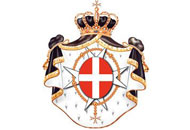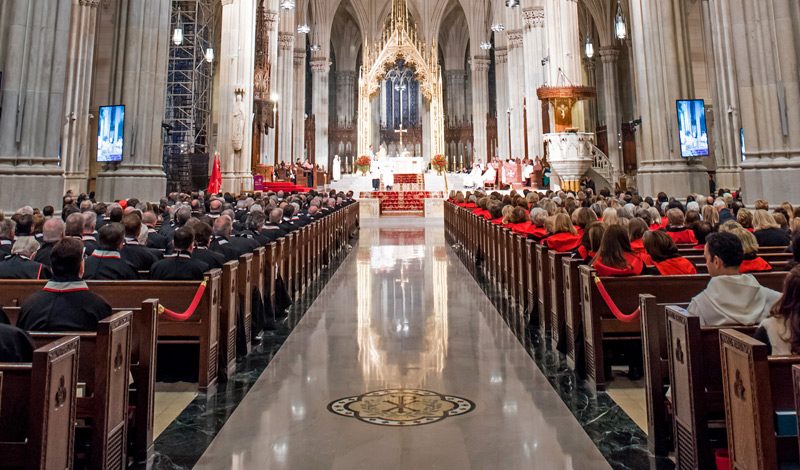This weekend, we celebrate the annual feast of Saint Peter and St. Paul, the “princes of the apostles.” This year, the feast day falls on a Sunday and so it replaces the usual Sunday readings and prayers. Therefore, let us spend a few minutes reflecting on these two wonderful saints. As with all our saints, in looking at their life it is good to admire them, but also learn from them about how we can follow Jesus and be his disciples.
Like many of Jesus’ first disciples, St. Peter came from a town called Bethsaida in Galilee, on the shores of Lake Tiberias. He was a fisherman, along with his brother Saint Andrew. It was Andrew who told Peter all about Jesus after spending a day with the Lord. Peter came up to Jesus and Jesus looked at him: a look that changed Peter’s whole life (John 1: 40-42). Jesus renamed Peter (his original name was Simon): he is now “Cephas” or “Peter”: literally the “rock” (on which Jesus will build His church). Jesus changes Simon’s name because he is choosing him and giving him a new purpose and mission. We can say the same thing about the successors of Saint Peter: the popes. They too change their name when they become Pope because, as with Peter, they now have a new mission and purpose given to them by God.
But this can also be our first lesson. In our baptism, we too are “named.” In fact, “what name do you give your child” is the very first question the parents of a baby to be baptized are asked. In baptism, we are called by God and given a special purpose and mission: we call it our Christian vocation. It is the unique and God-given calling God has for each of us to be his disciples; how we are to follow Jesus, to make a difference and to be Jesus’ coworkers in building up the Kingdom of God. Our missions and ministry as members of the Order is built upon this foundation in baptism. When we become members of the Order, we might say that our baptismal calling and mission is given a new or further focus and direction.
We can recall how Saint Peter did not always get things right: we might say that Peter did not change as quickly as his name was changed! After professing his faith in Jesus as “the Christ, the Son of the living God” (Matthew 16:18), he then remonstrated with Jesus because Jesus was telling his disciples of how he was to be put to death. Jesus even calls him an “obstacle” to his mission (Matthew 16: 23)! At the Last Supper, Peter is reluctant to have his feet washed, perhaps because he did not grasp the meaning of what Jesus what doing (John 13: 6-11). Of course, we all know how Peter denied Jesus three times during Jesus passion; but also how Peter was then reconciled with the Lord (and himself!) when the risen Lord appeared to Peter and the apostles by the lake shore (John 21: 15ff.). What comes out from reading about Peter in the Scriptures is that he is a warm, loving, and also an impetuous man, but one whose heart is always open to God’s love.
Well, we do not always get thing “right” when trying to follow the Lord, or in discerning what God wants of us. What is more, God calls all sorts of different people, with different gifts and personalities (including us!) to be his coworkers and friends. Like Peter, we need to have a heart that is open and willing to love and to serve the Lord. If we mess up, like Peter, we can turn to the Lord for forgiveness, or help, or perhaps guidance, and try again to follow the master. Perhaps we have had embarked on projects for the Order that did not work out, or perhaps we have managed to clash with others (yes, it can happen!). St. Peter provides us with hope and encouragement to try again and to ask for help or forgiveness.
Peter also gave his life for Jesus. He was executed during the persecution of Christians by the Roman Emperor Nero in 64 AD. Peter was crucified but, as Tradition has it, he did not feel worthy to be crucified in the same way as Jesus and so he asked to be crucified upside down. We know that the great basilica of Saint Peter’s in Rome has been built over the place of Peter’s burial. Well, we may not be executed for being a Christian, as Saint Peter was (although we know that this very day Christians are being persecuted and killed for their faith in various parts of the world); but the Lord does ask us to be his faithful and bold witnesses to the world (remembering that the word “martyr” actually means witness).
Let us not forget St. Paul! His letters contain a huge treasury of thought and insight that has profoundly influenced and guided the development of our Christian faith. Many elements of Christian teaching are rooted in St. Paul’s letters and thirteen out of the twenty-seven documents in the New Testament are in his name.
St. Paul was probably born around 8-10 AD and, as we know, he was a zealous defender of the Jewish faith. Before his famous conversion on the road to the city of Damascus (Acts 9: 1-22), he was a persecutor of the early Christians. After his conversion he went on three missionary journeys to the then known world to spread the Gospel and he founded many churches as he went along on those journeys. In fact, many of his letters are addressed to these new churches. St. Paul finished his life in the great city of Rome where he was imprisoned for some time before being executed for his faith by beheading.
There is no doubt that many key areas of doctrine and spirituality have been profoundly influenced by the writings and testimony of St. Paul. For example, our justification (that is the new relationship with God we receive through our baptism), the nature of original sin, how we are redeemed through Jesus Christ, the role of good works in our lives and the meaning of faith and of conversion. He also shows us the pattern and nature of evangelization itself (how we are to spread the Gospel today). St. Paul took the Gospel to the everyday places where people could be found, rather than expecting them to come to him. Most famously, he went to the areopagus (the town square, the center of civic life) in Athens and preached Christ there (Acts 17: 16-34). Two thousand years later at the beginning of the third millennium, Saint John Paul II invited all of us to do the same: to go to the modern day “areopagi” and to bring Christ to those everyday places. St. Paul also stressed the importance of our own experience of the risen Lord so that, as he puts it, “I no longer live, it is Christ who lives in me” (Galatians 2: 20). May our encounter with the risen Christ inspire and direct us as we work to bring Him to those whom we serve in the various “areopagi” where our Order operates.
As we conclude our reflection on our two saints, let us place our heart, our life in the Lord’s hands as they did and ask the Lord for his help and guidance. Let us be open to the ways that Jesus is asking us to follow him and let us ask the prayers of Saint Peter and St. Paul. In short, let us, with God’s grace, be true to a name (and so a calling) that we all share: “Christian.”
Very Rev Msgr. Anthony M. Barratt, STL, PhD, EV, ChM




